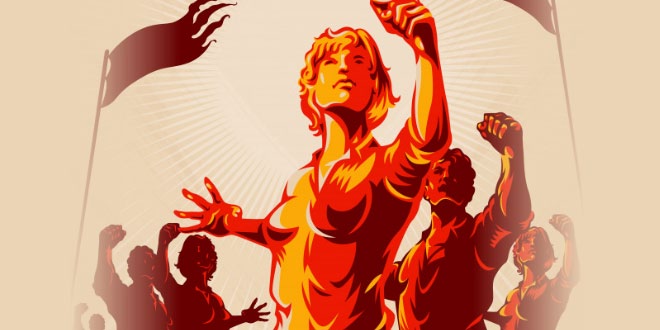Question: What is Majoritarianism?
Answer: A belief that the majority community should be able to rule a country in whichever way it wants, by disregarding the wishes and need of the minority.
Question: Highlight the steps taken by Sinhala government to establish their supremacy?
Answer:
- In 1956 an act was passed to recognise Sinhala as the only official language.
- The governments followed preferential policies that favoured Sinhalas applicants for university positions and government jobs.
- The state shall project Buddhism-religion followed by Sinhalas.
Question: What was the outcome of this policy?
Answer: Civil War: A violent conflict between opposing groups within a country that becomes so intense that is appears like a war.
Question: Why did Tamils develop a feeling of alienation towards Sri Lanka?
Answer:
- They felt that of the major political parties led by the Buddhist Sinhala leaders were sensitive to their language and culture.
- They felt that the constitution and government politics denied them equal political rights. Discriminated against them in getting jobs and other opportunities and ignored their interests. As a result the relations between the Sinhala and Tamil communities strained over time.
- The Sri Lankan Tamils launched parties and struggles for the recognition of Tamil as an official language, for regional autonomy and equality of opportunity in securing education and jobs.
- By 1980s several political, militant organisations were formed demanding an independent Tamil Eilam (state).
Question: How did the Sri Lankan and the Belgium government try to solve the ethnic problem?
Or
Explain any two important differences between the power sharing model accepted by Belgium and Sri Lanka.
Answer:
- The Belgium leaders tried to solve the ethnic problem by respecting the feelings and interests of different communities and regions, whereas the Sri Lankan government tried to solve the problem through majoritarianism.
- Belgium leaders established a federal structure under which power was shared between the Union Government and its other constituent units whereas Sri Lankan leaders adopted Unitary Government structure.
- The Belgium solution helped in avoiding civic strife whereas the majoritarianism in Sri Lanka led to the civil war.
Question: What is community government? Explain the concept of community government with context to Belgium.
Answer:
- A community government is one in which different social groups are given the power to handle the affairs related to their communities. They are expected to work jointly for the benefit of the common masses without undermining any one community.
- The “community government” is elected by people belonging to one language community – Dutch, French and German speaking – no matter where they live.
- This government has the power regarding cultural, educational and language-related issues.
Question: Why is power sharing desirable?
(I) Prudential
(II) Moral
Answer:
I. Prudential:
- Power sharing is good because it helps to reduce the possibility of conflict between social groups.
- Power sharing is a good way to insure the stability of political order.
- Imposing the will of majority community over others way look like an attractive option in the short run but in the long run it determines the unity of the nation.
- Tyranny of the majority is not just oppressive for the majority; it often brings ruin to the majority as well.
II. Moral:
- Power sharing is the very spirit of democracy.
- A democratic rule involves sharing power with those affected by its excise and who have to live with its effects.
- People have a right to be consulted on how they are to be governed.
- A legitimate government is one where citizens, through participation, acquire a state in the system.
Question: What is the basis principal of democracy? Why is power sharing important in a democracy?
Answer:
- One basic principal of democracy is that people are the source of all political powers.
- In a democracy, people rule themselves through institutions of self governance.
- Due respect is given to diverse groups and views that exist in a society.
Question: What are the different forms of power sharing in modern democracies? Give an example of each of these.
Answer:
- Power sharing among the different organs of government (Horizontal power sharing): In a democracy, power is shared among the different organs of the government such as the legislature, executive and the judiciary. This is called the horizontal distribution of power because it allows different organs of the government placed at the same level to exercise different powers. Under this kind of power sharing arrangement, one can exercise unlimited powers. Each organ has its own powers, and it can also check the powers of other. So this results in a balance of power among the various institutions.
- Power sharing among governments at different levels: Under this, people choose separate governments at separate levels, for example, a general local government for the entire country and local governments at the provincial, sub-national or regional levels. Such a general government for the entire country is usually called a Federal government.
- Power sharing among different social groups: In a democracy, especially, in a multi-ethnic society, power is also shared among social groups such as the religious and linguistic groups. ‘Community government’ in Belgium is a good example of this arrangement. In some countries, there are constitutional and legal arrangements whereby socially weaker sections and women are represented in the legislatures and the administration.
- Power sharing among political parties, pressure groups and movements: In a democracy, power is also shared among different political parties, pressure groups and movements. Democracy provides the citizens a choice to choose their rulers. This choice is provided by the various political parties, who contest elections to win them. Such competition ensures that power does not remain in one hand.
 Class Notes NCERT Solutions for CBSE Students
Class Notes NCERT Solutions for CBSE Students





